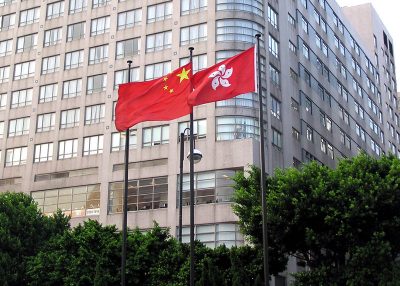The administration of Chief Executive Leung Chun-Ying can be happy with the results. The administration will continue to work hard to maintain the support of pro-Beijing legislators who now control 43 seats. When it encounters difficulties, the Leung administration can also seek Beijing’s support such as through the Central Liaison Office. But rising discontent, as reflected by geographical constituency voters, demands a new approach and innovative policies, and this is an altogether different challenge.
The Chinese authorities should be satisfied with the electoral performance of pro-Beijing parties. Well supported by a very expensive electoral machine, these parties demonstrated sophisticated election tactics and substantial voter mobilisation power. Mainland Chinese leaders are concerned by the strengthening local identity of the Hong Kong community and its growing suspicion of Beijing. This concern may weaken Chinese support for democratic reform in Hong Kong, though the electoral system for the next Chief Executive election in 2017 does not need to be finalised until the end of 2015.
Legislative Council elections in Hong Kong do not change government. The Legislative Council’s ability to affect important policy issues is limited because, in an executive-led system of government, policy initiatives come from the government. Voters support pro-democracy groups because they want to maintain some checks and balances on the government.
This time around, pro-democracy groups won 27 seats altogether, slightly improving their proportion of seats in the legislature. They were pleasantly surprised by results in ‘functional’ constituencies (where participation is limited to industry and professional groups which tend to be pro-Beijing), pro-democracy groups winning 6 out of 35 seats. The 3 out of 5 seats won in territory-wide super seats were a satisfactory outcome too.
For pro-democracy groups, the real issue is that, despite substantial anger with the government and an expectedly high voter turnout rate of 53 per cent (only two percentage points below the record high in 2004), pro-democracy groups have not done as well as they could have in the direct elections. As a result, pro-democracy parties have been criticised for their lack of coordination in the elections.
For example, the campaign against Beijing-backed national education reforms probably helped to create high voter turnout and bolster the pro-democracy cause, but there were no formal links between the education protest movement and pro-democracy parties. The leaders of the education campaign wanted to separate it from pro-democracy parties and the elections. The fact that a civil society movement wants to distance itself from pro-democracy political parties is not a healthy sign.
Pro-democracy parties also failed to coordinate tactically. The present party-list proportional representation electoral system rewards political parties or coalitions that reduce their number of candidates. If parties allocate their supporting votes tactically, they can secure the maximum number of seats available from their share of the vote. The pro-Beijing camp seemed to be able to do this very well. But pro-democracy groups were divided and engaged in mutual attacks, so they were unable to fully exploit their overall share of the vote. This meant that the number of seats won by pro-democracy parties was disproportionately low to the number of votes cast in their favour.
The performance of the radical pro-democracy groups was impressive. People Power and the League of Social Democrats collected 14.6 per cent of the vote in the direct elections. In terms of seats, they improved from three to four.
The rise of the radical wing of the pro-democracy movement reflects a gradual change in the political culture and also the exacerbation of grievances and dissatisfaction at the grassroots level and among young people. They support strong protest acts to air their grievances, and have no intention of pursuing policy changes through compromises. This certainly makes co-ordination among the pro-democracy groups increasingly difficult. The bloc of pro-democracy parliamentarians can probably cooperate to stall any of the current administration’s political reform proposals that would deny the pro-democracy groups the chance to nominate a candidate in the 2017 Chief Executive election, which will apparently be based on universal suffrage. But it is difficult for these groups to form a united coalition to negotiate with Beijing because there is little mutual trust among them, which makes it difficult to reach a consensus.
Ultimately, the future of democracy in Hong Kong depends on the political orientation of the new Chinese leadership that will emerge from the coming Party Congress. If the new leadership intends to pursue political reforms in China, it will probably allow Hong Kong to experiment with genuine democracy. If not, Chinese authorities may continue to intervene in Hong Kong to ensure political stability and economic prosperity.
Joseph Cheng is Professor of Political Science at the City University of Hong Kong.


The prognosis that the democratic development of Hong Kong is dependent entirely on China’s political wishes seems a poor and pessimistic one, albeit realistic.